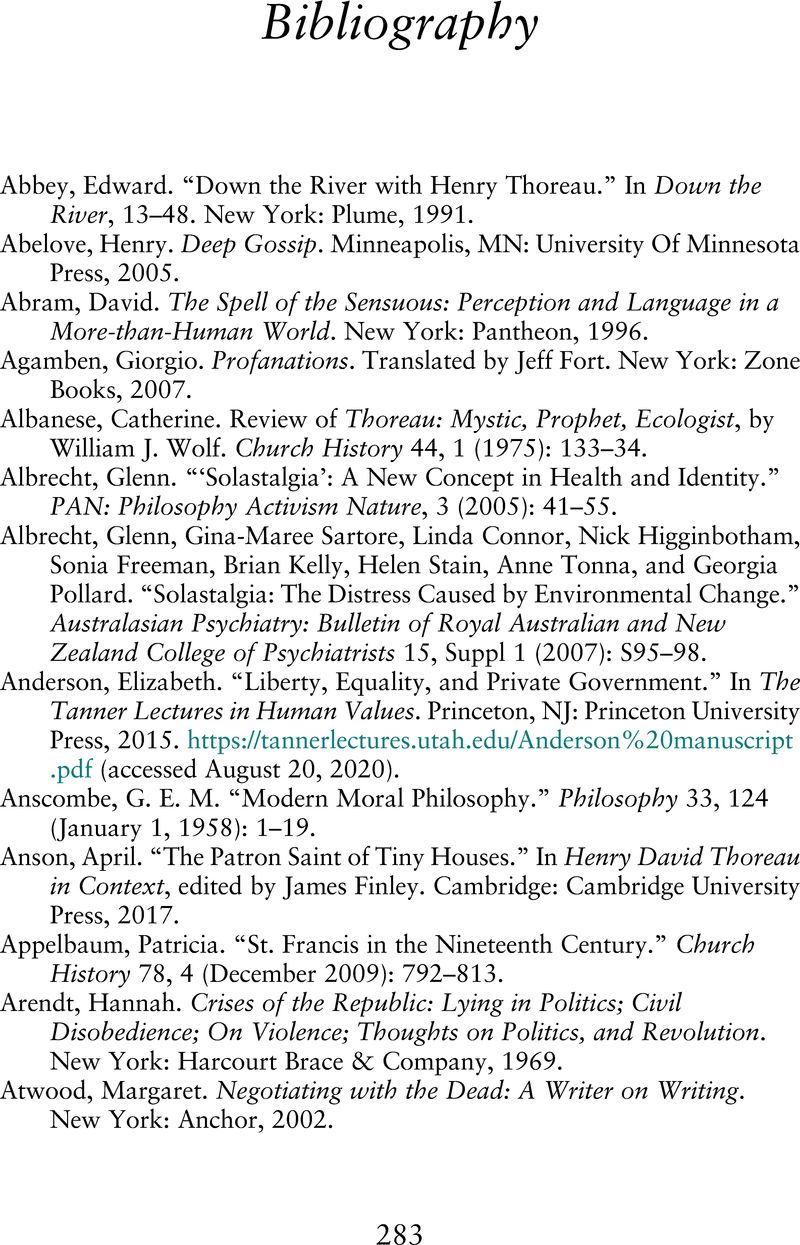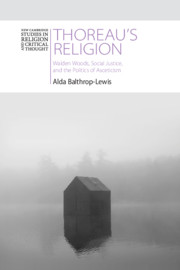Book contents
- Thoreau’s Religion
- Reviews
- Series page
- Thoreau’s Religion
- Copyright page
- Dedication
- Epigraph
- Contents
- Preface
- Acknowledgments
- Introduction: Why Thoreau Would Love Environmental Justice
- 1 Thoreau’s Social World
- 2 The Politics of Getting a Living
- 3 Thoreau’s Theological Critique of Philanthropy
- 4 Political Asceticism
- 5 Delight in True Goods
- Conclusion: The Promise of a Delighted Environmental Ethic
- Epilogue: On Mourning
- Bibliography
- Index
- References
Bibliography
Published online by Cambridge University Press: 14 January 2021
- Thoreau’s Religion
- Reviews
- Series page
- Thoreau’s Religion
- Copyright page
- Dedication
- Epigraph
- Contents
- Preface
- Acknowledgments
- Introduction: Why Thoreau Would Love Environmental Justice
- 1 Thoreau’s Social World
- 2 The Politics of Getting a Living
- 3 Thoreau’s Theological Critique of Philanthropy
- 4 Political Asceticism
- 5 Delight in True Goods
- Conclusion: The Promise of a Delighted Environmental Ethic
- Epilogue: On Mourning
- Bibliography
- Index
- References
Summary

- Type
- Chapter
- Information
- Thoreau's ReligionWalden Woods, Social Justice, and the Politics of Asceticism, pp. 283 - 301Publisher: Cambridge University PressPrint publication year: 2021



